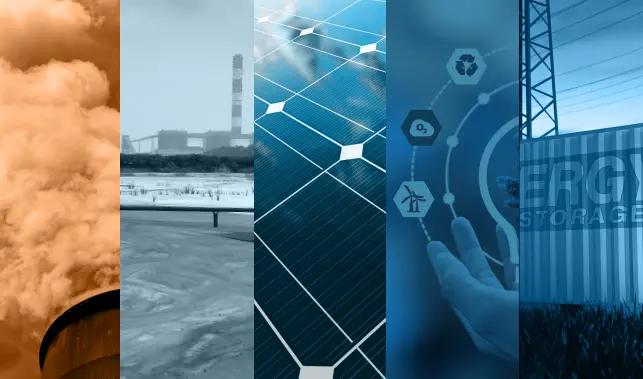
Clean savings: ₹5,700 Crore benefit for Maharashtra from repurposing old coal plants for clean energy
Mumbai, December 7th, 2022: Repurposing some of Maharashtra’s oldest and most expensive coal plants by using the land and some of the old coal infrastructure for clean energy and grid stability services can deliver ₹5,700 crore (Cr) in benefits, new analysis commissioned by research organisation Climate Risk Horizons shows.
The research, by Dr. Gireesh Shrimali, Head of Transition Finance Research, Oxford Sustainable Finance Group at the University of Oxford, has for the first time quantified the costs and benefits associated with retiring and repurposing 4,020 MW of old coal units at Bhusawal, Chandrapur, Koradi, Khaparkheda and Nashik. The report illustrates how the state can maximise financial gains from repurposing older units, gradually reducing its dependence on coal over the coming decade, in line with India’s Nationally Determined Contributions (NDCs) under the Paris Climate Accord.
“Maharashtra is already one of the leading states in India’s energy transition story. This study shows that shutting down and repurposing the state’s older, more expensive coal plants could provide a financially attractive opportunity to accelerate this transition in a way that benefits state finances,” said Ashish Fernandes, CEO of Climate Risk Horizons, which commissioned the analysis. He added that these old coal units are near or past their end of life and have high running costs, up to ₹6/kWh. They also need to be retrofitted with air pollution control equipment to comply with emission standards, at considerable expense.
“Several studies have already shown that retiring old coal plants and replacing their planned generation with new, renewable energy can generate savings by way of lower electricity costs. This analysis looked at specifics of the plants in question in Maharashtra, and detailed decommissioning costs and financial benefits that would accrue from repurposing the existing land and electrical infrastructure for a combination of solar PV, battery storage and grid stabilisation services,” said Fernandes.
“The financial benefits of repurposing some or all of these coal plants would be between 2-4 times the costs of decommissioning, and would cover a substantial proportion of the new capital expenditure required for solar, batteries and synchronous condensers,”(1) said Dr. Gireesh Shrimali.
Total decommissioning costs for the units assessed was approximately ₹1,756 Cr, while the one-time benefits from repurposing for solar PV with battery storage would be ₹4,356 Cr, the study showed.
The analysis also found that while repurposing coal plants for solar PV and battery storage, if the old power plant turbo generator is also repurposed to serve as a synchronous condenser, the benefits are even higher at ₹5,700 Cr.
“Utilising the pre-existing land and grid connection facilities would significantly reduce the cost of the renewable energy generated. This would bring the cost to ₹1.87 and ₹2.69 per unit of electricity respectively for solar PV and PV with battery storage, providing Maharashtra State Power Generation Company (Mahagenco) with a cheap source of flexible power,” said Shrimali.
Repurposing the plants and their associated ash ponds for solar and battery storage would yield capacities of 1,224 MW of solar and 120 MW of 4-hour battery storage.
“With the severe air and water pollution problems caused by coal plants in the state, it is essential that Maharashtra reduce its dependence on expensive and obsolete coal plants. We need to look at long term solutions, not just for public health, but also to arrest the rise in electricity prices,” said Suresh Chopane, President, Green Planet Society, Chandrapur, a hotspot for coal pollution.
Notes to Editor:
- Synchronous condensers involve repurposing of the old coal plant’s turbogenerator to provide reactive power to help balance grid fluctuations.
- Report is available at https://climateriskhorizons.com/research
Contact:
- Ashish Fernandes <ashish.fernandes@climateriskhorizons.com>
(Study author contact available on request)
